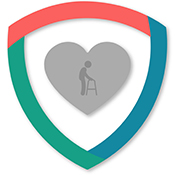 If you are involved in caring for an older adult, maybe suffering from Dementia or Alzheimer’s, or possibly suffering from a physical disability; you already know how difficult communicating with them can sometimes be. It is understandable that our Receivers of Care can perceive us as ‘bossy’. It is also understandable that we won’t like that perception one bit!
If you are involved in caring for an older adult, maybe suffering from Dementia or Alzheimer’s, or possibly suffering from a physical disability; you already know how difficult communicating with them can sometimes be. It is understandable that our Receivers of Care can perceive us as ‘bossy’. It is also understandable that we won’t like that perception one bit!
We didn’t choose to have to tell our loved ones what to do and how to do it. They certainly did not choose to need care. It is easy to get frustrated in the whole communication process, ending up in an unnecessary argument. At the very best, we may meet with passive resistance from our loved ones and that doesn’t help anyone. At the very worst, an all out war!
This article from Psychology Today provides some excellent tips for communicating with the loved ones we care for. If you or your loved one are particularly struggling with communication, there is also a book that goes in to greater detail offered in the article.
 You have found the home-care provider or facility you want to help with the care of your aging loved one, but how does one pay for this? If your loved one doesn’t have long-term health insurance, things can get expensive very quickly.
You have found the home-care provider or facility you want to help with the care of your aging loved one, but how does one pay for this? If your loved one doesn’t have long-term health insurance, things can get expensive very quickly.  This
This  One of the most frustrating things to deal with when caring for an aging parent is the many health complications that arise as one ages. Medical safety is of key concern. Many family member also acting as caregivers have not had a great deal of experience dealing with doctors and various medical safety issues. There are many questions that arise, making the whole caring experience a bit overwhelming without the proper information.
One of the most frustrating things to deal with when caring for an aging parent is the many health complications that arise as one ages. Medical safety is of key concern. Many family member also acting as caregivers have not had a great deal of experience dealing with doctors and various medical safety issues. There are many questions that arise, making the whole caring experience a bit overwhelming without the proper information. Most people want to be independent and do not want to be a burden on the family, hesitating to ask us for the help they need. When dealing with a family member who still has fairly strong cognitive abilities, we can only know where to provide help if we can teach our loved one to ask for help. Of course we will see some obvious areas where help is needed, but in order to provide the best possible care, we need him/her to be open with us.
Most people want to be independent and do not want to be a burden on the family, hesitating to ask us for the help they need. When dealing with a family member who still has fairly strong cognitive abilities, we can only know where to provide help if we can teach our loved one to ask for help. Of course we will see some obvious areas where help is needed, but in order to provide the best possible care, we need him/her to be open with us. What is normal, healthy aging, and what do we know about it?
What is normal, healthy aging, and what do we know about it?